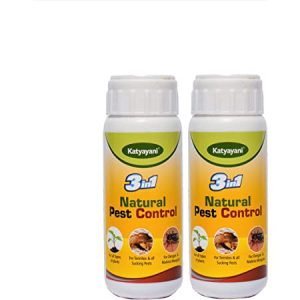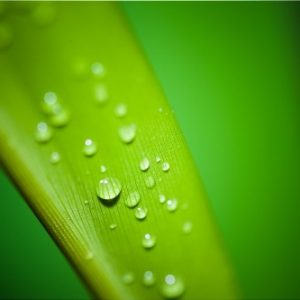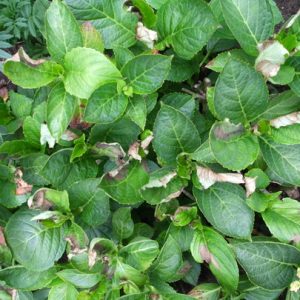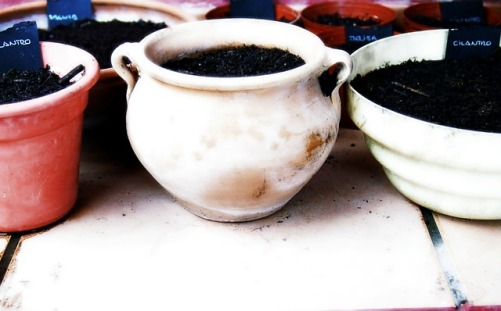Having pests in your home garden can be a nightmare. Not only can these insects cause a lot of damage, but you can also risk losing a lot of crops and even plants. This article will discuss some of the different ways to get rid of these pests, including natural insecticides and parasites.
Predators and Parasites
Biological control involves the use of natural enemies such as parasitoids and predators. These predators and parasites are beneficial and often harmless to humans, but they must be introduced into your garden with knowledge of the pests you are trying to rid of. They can be purchased at local nurseries and mail order suppliers.
Predators and parasites control garden pests in a number of ways. Some predators ambush their prey while others suck bodily fluids from the pest. Some predators are generalists that feed on a variety of insects. Others are specific and are good at hunting a single pest species.
One of the most common predators is the rove beetle, which feeds on a variety of insects. In addition, it may feed on the larvae of fungus gnats and shore fly larvae. In some cases, it will also feed on the pupae of thrips.
Another example of a predator is the spined soldier bug, which has armor-like wings. It also has a sharp beak. This bug is often mistaken for a black bumblebee, but it is actually a gray-black fly. It is a very good insect predator, and has been known to control the Douglas-fir tussock moth caterpillar.
Biological control programs also take advantage of disease agents. These agents can be sprayed around infected plants, and can kill both the pest and the predator. Some fungi, bacteria, and viruses are also beneficial. Some predators are also good at killing prey in their entirety.
Another common natural enemy is the parasitic nematode, which is a round worm with insect pathogenic bacteria inside the gut. It’s not toxic to humans, but it’s highly host-specific. It is used to control Mexican bean beetles on fresh market beans.
Biological control is part of a total integrated pest management program. This program includes scouting, sound cultural practices, and the use of compatible pesticides. In addition to parasites and predators, a total integrated pest management program should also include disease resistant plants, disease-resistant seed, and disease resistant pesticides.
Predators and parasites are a natural part of a balanced garden. By introducing these organisms into your garden, you can effectively control pests and reestablish a predator-prey relationship.
Neonicotinoids
Several studies have indicated that neonicotinoids pose a threat to bees, and other beneficial insects. In addition, they have been linked to colony collapse disorder, a phenomenon that has devastated bee colonies.
The EPA has pulled several neonicotinoid-based pesticides from the market. However, it’s still unclear how widespread human exposure to neonics is. In addition to the dangers of neonics to bees, they are suspected of affecting bird populations.
While neonicotinoids are effective against insects, they are also thought to harm bees, birds, and other beneficial insects. For instance, they contaminate pollen and nectar, and can impede the navigation and foraging of honeybees.
While neonics are effective in killing insects, they can affect the nervous systems of insects. In addition, they can contaminate food, water, and soil. They also cause paralysis. As a result, they are regarded as one of the primary threats to beneficial insects.
Neonicotinoids are systemic pesticides that move through the vascular system of plants. The active ingredient is absorbed by leaves, stems, and flowers. They are absorbed through plant tissue, and they can persist in the soil for months. They are also absorbed by honeybees.
Neonicotinoids are also used to protect seeds. For example, they were used to prevent sugar beets from developing Yellow Virus, which is carried by aphids. Neonics were applied to seeds before planting. In the Midwest, the neonicotinoid-coated corn seed was planted in the spring. When the seed was poured, the chemical formed a pink cloud, which drifted off to bee hives.
Neonicotinoids can be found in many home garden products. They are used to kill aphids, insects that suck the juice of plants all day.
Some neonicotinoids are also used to kill leaf-chewing insects, and they are applied to bark. They are used for big industrial crops, but they are also found in home garden products.
Neonicotinoids are applied to plants in a variety of ways, including through seed treatment, soil application, bark treatment, and insecticide injection. Neonicotinoids can be used on seeds, bark, soil, and foliage, and they can remain in the plants for months.
Natural Insecticides
Using natural insecticides for controlling pests in your home garden is one of the best ways to prevent damage. These pesticides are less harmful to the environment and to beneficial insects. But you should remember that these methods may require repeated applications.
Neem oil is one of the best natural insecticides for controlling pests in your home garden. It works by killing worms and larvae under the ground. It is also effective against Japanese beetles, who eat a variety of plants. It can be bought at a garden center or at any department store. It is also very inexpensive.
Insecticidal soap is another natural insecticide for controlling pests in your home garden. It is an inexpensive, non-toxic product. It comes in a spray bottle and is easy to use. It can be purchased at many department stores or on Amazon. You should make sure to buy the soap that has been approved by the Organic Materials Review Institute.
Bacillus thuringiensis is a naturally occurring bacteria that is found in the soil. This bacterium releases a protein that causes an insect to die within a few days. This microorganism can be used against worm-like pests, including cutworms and whiteflies. It also is effective against certain caterpillars.
Food-grade diatomaceous earth is another natural insecticide for controlling pests in your home garden. This product is made of fossilized diatom shells and is extremely effective against hard-bodied and soft-bodied insects. It can also be used as a soil treatment.
Sulfur is the oldest pesticide in use. It is primarily used for disease control, but it is also effective against thrips, leaf spots on fruits, and mites. It can be used in a wettable powder or as a spray.
Pyrethrum daisy insecticide is a natural insecticide that is derived from the pyrethrum daisy plant. It is effective against many insect pests, but does not discriminate between beneficial and harmful insects. It is only mildly toxic to people and pets.
If you want to use natural insecticides for controlling pests in your home garden, make sure to follow the label directions. You may need to repeat applications if the pests become resistant to the product. You should also wear protective clothing when spraying.
Scale Insects
Almost any plant can be attacked by scale insects. This includes many outdoor plants and even houseplants. The first sign of a scale infestation is leaf discoloration. You can find the insects on a variety of plants, from citrus to hydrangea.
Scale infestations can be difficult to control. The best solution is to remove infected plants and dispose of them properly. In addition, you should not compost infected plant material. Insecticides should be a last resort and should be used only when all other methods have failed.
The best insecticide for controlling scale insects on plants is azadirachtin. This type of organic pesticide is safe for humans and beneficial insects. It disrupts the normal life cycle of insects and can be applied around the base of plants.
A second effective scale insect control method is insecticidal soap. These are sold at garden centers and mail order stores. The soap should be applied at dusk or early morning.
Another option is to use horticultural oil, which is also sold at garden centers. This suffocates the insects, but it is not as effective on soft scales. In addition, the oil blocks breathing holes, and may require multiple applications to completely eliminate an infestation.
Another effective scale insect control method is to prune infested branches. If the infestation is light, this may be the best option. If you do not want to prune, you can use a butter knife to scrape off scales.
You can also use a cotton swab dipped in rubbing alcohol to remove scales. However, this method is only effective for a few insects, and is not an effective solution for large outbreaks.
You can also use a DIY horticultural oil solution. This solution combines organic liquid soap with vegetable oil. You can also use it to treat broadleaf plants. The oil suffocates the insects and blocks breathing holes.
Another scale insect control method is to use sticky tape to mark suspect plants. Check them every week to see if crawlers are moving on them. You can also swab the infested shoot or leaf in a baggie and swab with rubbing alcohol.




